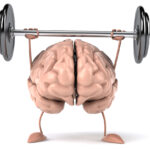Depression is a prevalent mental health condition affecting millions worldwide. While therapy and medication are commonly prescribed treatments, emerging evidence suggests that fitness and exercise can play a significant role in alleviating symptoms of depression. This article explores the connection between fitness and depression, highlighting 10 important points to consider, answering 10 frequently asked questions, and providing a final verdict on the effectiveness of fitness as a tool to combat depression.

Fitness and exercise have shown immense potential in helping individuals cope with and overcome depression. Engaging in regular physical activity not only improves physical health but also positively impacts mental well-being. By releasing endorphins, dopamine, and serotonin, exercise acts as a natural mood booster and stress reducer. It enhances self-esteem, promotes better sleep, and boosts cognitive function. Additionally, exercise provides an opportunity for social interaction and a sense of belonging, which can be crucial for individuals struggling with depression. By incorporating exercise into a holistic approach to treatment, individuals can experience transformative benefits, develop resilience, and embark on a journey towards improved mental and emotional well-being.
Important Notes/Points:
- The Science Behind Exercise and Depression: Understand how exercise influences the brain and the release of endorphins, dopamine, and serotonin, which are crucial neurotransmitters associated with mood regulation.
- Benefits of Regular Exercise: Explore the myriad of benefits exercise offers for mental health, including stress reduction, improved sleep patterns, increased self-esteem, and enhanced cognitive function.
- Types of Exercise for Depression: Discover various forms of exercise, such as aerobic exercises, strength training, yoga, and mindfulness activities, and their specific impact on managing depression symptoms.
- Exercise Intensity and Duration: Learn about the optimal intensity and duration of exercise required to maximize mental health benefits, considering factors like individual fitness levels and personal preferences.
- Exercise as an Adjunct Treatment: Explore how fitness can complement traditional treatments for depression, such as psychotherapy and medication, and potentially enhance their effectiveness.
- Exercise and Social Interaction: Understand the role of social interaction in combating depression and how fitness activities, such as group classes or team sports, can provide social support and foster a sense of belonging.
- Developing an Exercise Routine: Discover practical tips for establishing and maintaining a regular exercise routine, including setting realistic goals, incorporating enjoyable activities, and overcoming barriers.
- Mind-Body Connection: Explore the concept of mind-body exercises like yoga and tai chi, which emphasize the integration of physical movements, breath control, and mindfulness to improve mental well-being.
- Exercise and Prevention: Learn how engaging in regular physical activity can act as a preventive measure against developing depression and reduce the risk of relapse for individuals with a history of the condition.
- Seeking Professional Guidance: Understand the importance of consulting with healthcare professionals, such as therapists, trainers, or physicians, to tailor exercise programs that align with individual needs and limitations.

FAQ’s:
Can exercise completely cure depression?
Exercise is not a cure for depression, but it can be an effective tool in managing and alleviating symptoms.
How often should I exercise to experience mental health benefits?
Engaging in physical activity for at least 150 minutes per week, spread across several days, can provide mental health benefits.
Can low-intensity exercises still be effective for managing depression?
Yes, low-intensity exercises like walking or gentle yoga can still have a positive impact on managing depression symptoms.
Are there any specific exercises that are better for depression than others?
Any form of exercise that you enjoy and can sustain over time can be beneficial for managing depression. There is no one-size-fits-all answer.
What if I don’t enjoy traditional forms of exercise?
It’s important to find activities that you enjoy and that suit your preferences. Non-traditional exercises like dancing, gardening, or hiking can be equally effective.
Can I exercise outdoors to enhance the mental health benefits?
Yes, exercising outdoors has the added benefit of exposure to natural light, fresh air, and nature, which can further enhance the positive effects on mental well-being.
Should I consult my doctor before starting an exercise program for depression?
It is advisable to consult with your healthcare provider before starting any new exercise program, especially if you have any underlying health conditions.
Can exercise help with symptoms of anxiety and stress as well?
Yes, exercise has been shown to be beneficial for reducing symptoms of anxiety and stress, in addition to its impact on depression.
How long does it take to notice improvements in mood through exercise?
Some individuals may notice improvements in mood after a single exercise session, while for others, it may take a few weeks of consistent exercise to experience noticeable changes.
Are there any potential risks or precautions associated with exercising when depressed?
In general, exercise is safe for most individuals when done in moderation. However, if you have any concerns or medical conditions, it’s best to consult with a healthcare professional before starting an exercise program.

Final Verdict:
While fitness alone may not be a panacea for depression, the evidence strongly supports its positive impact on mental well-being. Incorporating regular exercise into one’s lifestyle can contribute significantly to alleviating depression symptoms, boosting mood, and enhancing overall quality of life. However, it is crucial to adopt a holistic approach by combining exercise with other treatments and seeking professional guidance to tailor routines to individual needs. Remember, finding what works best for you is key on the path to recovery from depression.












No Comment! Be the first one.